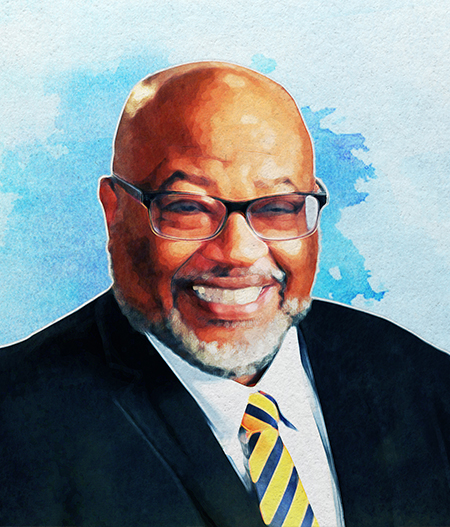Real change requires commitment from leadership.

The dual impact of the COVID pandemic and the social debate stemming from the Black Lives Matter movement has major implications for business. Harbert’s Garry Adams explores those implications in the following interview:
Harbert Magazine: One of your research interests is power and politics in organizations. What do you see as the impact of the COVID and BLM factors on these aspects of companies?
Garry Adams: Power and politics provide an interesting lens for examining the impact of and potential responses to the COVID pandemic and the BLM initiatives. As companies work through the direct impact and aftereffects of COVID, strong organizational leadership will be essential for firms to survive and thrive in a post-COVID environment. Buy-in and leadership from the CEO, top management team and board of directors will be required to provide tangible and intangible resources, shift organizational culture to adjust to the new post-COVID environmental norms, and to maintain a healthy and safe internal environment and interactions for various firm stakeholders.
On the other hand, the systematic biases at the heart of the BLM initiatives, glass ceiling effects for women and minorities, and LGBTQ protests are driven by power and political inequities at the societal, industry and firm levels. Addressing such inequities requires financial and policy support and commitment from political and organizational leaders, such as those provided during the civil rights movement in the 1960s. At the firm level, CEOs and boards need to be willing to delegate and share power, to hire and promote regardless of gender, ethnicity and sexual orientation, and to cement these values into the firm culture.
HM: Another of your research interests is CEO and firm reputation. How do you see these being influenced—positively or negatively—by the stresses of COVID and the social debate arising from BLM?
GA: In both the COVID and BLM matters, firms and leaders will develop reputations based on how they manage the issues spun off from the crises. If their responses address concerns espoused by affected COVID and BLM stakeholders, and are consistent with the leaders’ and firms’ cultural values and norms, then positive reputational effects should occur.
Organizational leaders will need to drive COVID- and BLM-based change, starting with their vision and mission statements. However, the most important elements are to change the organizational processes to reflect the COVID/BLM values and norms. Firms will need to “walk it like they talk it” to make sure their behaviors are consistent with their espoused mission statement values and beliefs.
Garry Adams
Associate Professor
Strategic Management at Harbert
